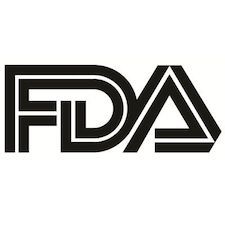Beti-Cel Gene Therapy for β-Thalassemia Receives FDA Approval
“The approval of ZYNTEGLO marks a watershed moment for the field of gene therapy," Andrew Obenshain, CEO of Bluebird Bio says.

This article was orginially published on CGTLive.
The US Food and Drug Administration (FDA) has approved bluebird bio’s gene therapy betibeglogene autotemcel (beti-cel), now marketed as ZYNTEGLO, for adult and pediatric patients with β-thalassemia who require regular red blood cell (RBC) transfusions (transfusion dependent thalassemia; TDT).
“The FDA approval of ZYNTEGLO offers people with beta-thalassemia the possibility of freedom from burdensome regular red blood cell transfusions and iron chelation, and unlocks new possibilities in their daily lives,” Andrew Obenshain, chief executive officer, bluebird bio, said in a statement.
Individuals living with the rare disease experience multiple health issues including dizziness, weakness, fatigue, and bone abnormalities among other serious complications. Because the inherited blood disorder reduces the amount of normal hemoglobin and red blood cells, those affected aren't able to sufficiently transmit oxygen through the body.
“After more than a decade of research and clinical development, and through the perseverance of clinicians, patients, and their families, the approval of ZYNTEGLO marks a watershed moment for the field of gene therapy. As the first ex-vivo lentiviral vector gene therapy approved in the US for the treatment of people with betathalassemia, we are ushering in a new era in which gene therapy has the potential to transform existing treatment paradigms for diseases that currently carry a lifelong burden of care," Obenshain continued.
Beti-cel is an autologous, lentiviral gene therapy that delivers a modified form of the β-globin gene into patients’ hematopoietic stem cells ex vivo which are then infused back into the patient to enable corrected levels of hemoglobin production without regular RBC transfusions. The therapy will only be available at qualified treatment centers with expertise in stem cells, cell and gene therapy, and β-thalassemia.
“Today’s approval is an important advance in the treatment of beta-thalassemia, particularly in individuals who require ongoing red blood cell transfusions,” Peter Marks, MD, PhD, director of the FDA’s Center for Biologics Evaluation and Research said. “Given the potential health complications associated with this serious disease, this action highlights the FDA’s continued commitment to supporting development of innovative therapies for patients who have limited treatment options.”
ZYNTEGLO was reviewed under Priority Review and was granted Orphan Drug designation and Breakthrough Therapy designation by the FDA. The therapy is currently being evaluated in the phase 3 HGB-207 study (NCT02906202), from which recent data demonstrated transfusion independence in 20 of 22 evaluable patients (91%), including 6 of 7 patients (86%) younger than 12 years of age.
“Transfusion-dependent beta-thalassemia is associated with an intense treatment burden and significant health risks related to regular red blood transfusions and iron management,” Alexis A. Thompson, MD, MPH, Chief, Division of Hematology, Children's Hospital of Philadelphia, added. “As a clinician and an investigator in the ZYNTEGLO clinical development program, I celebrate the therapeutic potential of this treatment for patients and its implications for the field of gene therapy, all made possible through the incredible courage of patients and families who participated in the clinical trials.”
Trials investigating beti-cel, the phase 3 Northstar-2 (HGB-207) and Northstar-3 (HGB-212) studies were previously under a clinical hold, lifted in June 2021, along with other programs from bluebird using the lentiviral vector BB205 including the phase 1/2 HGB-206 and phase 3 HGB210 trials of LentiGlobin for sickle cell disease.
The lentiviral vector was being investigated following the diagnosis of acute myeloid leukemia (AML) in a patient treated with bb1111 around 6 years ago in a phase 1/2 study and another suspected unexpected serious adverse reaction (SUSAR) of myelodysplastic syndrome, although these patients were not treated with ZYNTEGLO. Further investigation concluded that the MDS was a misdiagnosis and the AML was not due to the lentiviral vector.
Most recently, the FDA Cellular, Tissue, and Gene Therapies Advisory Committee cast a unanimous vote in favor of the benefit of beti-cel in patients with TDT with a non–β0/β0 genotype, calling the efficacy of the drug "remarkable" and "life-changing". The Institute for Clinical and Economic Review (ICER) also gave beti-cel a rating of B+, concluding that therapy is superior to standard of care for patients with β-thalassemia, but the magnitude of this superiority is still uncertain due to known risks with myeloablative conditioning and unknown durability.
The FDA advisory committee also cast a unanimous vote in support of the company's candidate for the treatment of early active cerebral adrenoleukodystrophy (CALD), elivaldogene autotemcel (eli-cel; Lenti-D), the PDUFA date for which is September 16, 2022.
“The Cooley’s Anemia Foundation applauds the FDA’s approval of ZYNTEGLO for people with beta-thalassemia who require regular red blood cell transfusions. The availability of a one-time gene therapy which offers the possibility of transfusion independence opens up new and exciting opportunities for those who are medically eligible to receive this treatment option,” Craig Butler, National Executive Director, Cooley’s Anemia Foundation, said. “While advances in treatment have been of enormous benefit to those with beta-thalassemia, a potentially curative therapy may offer a true lifechanging experience.”